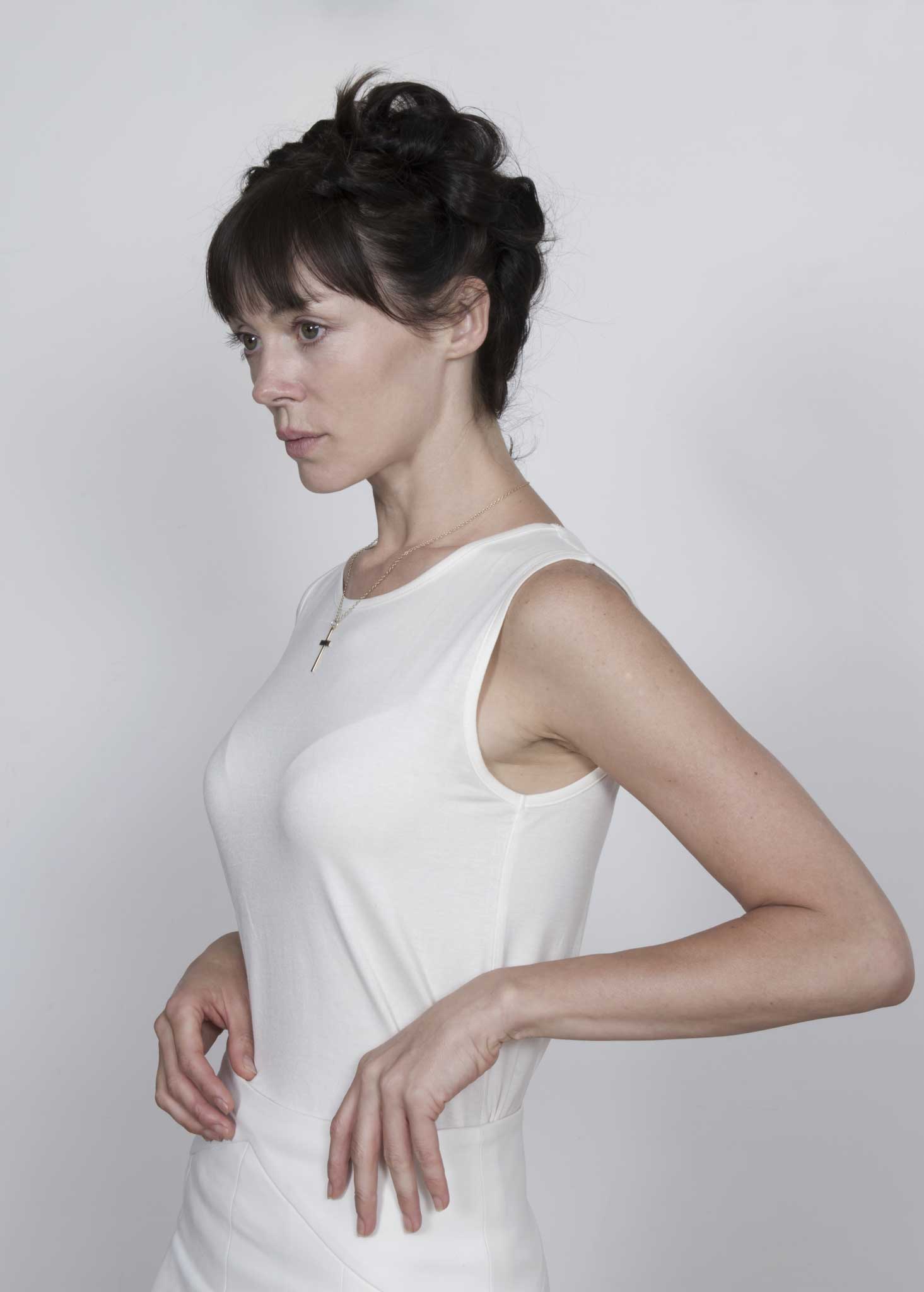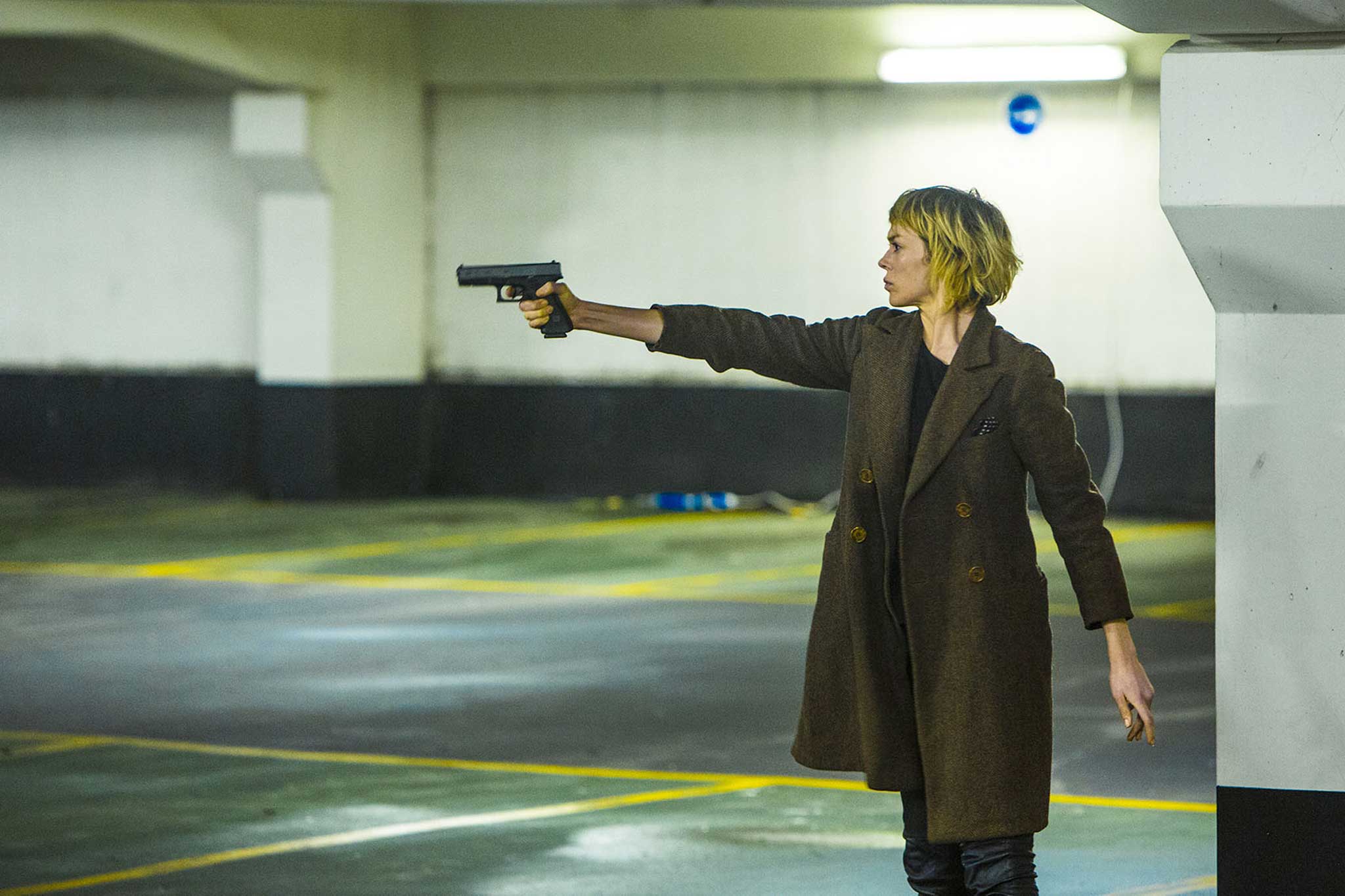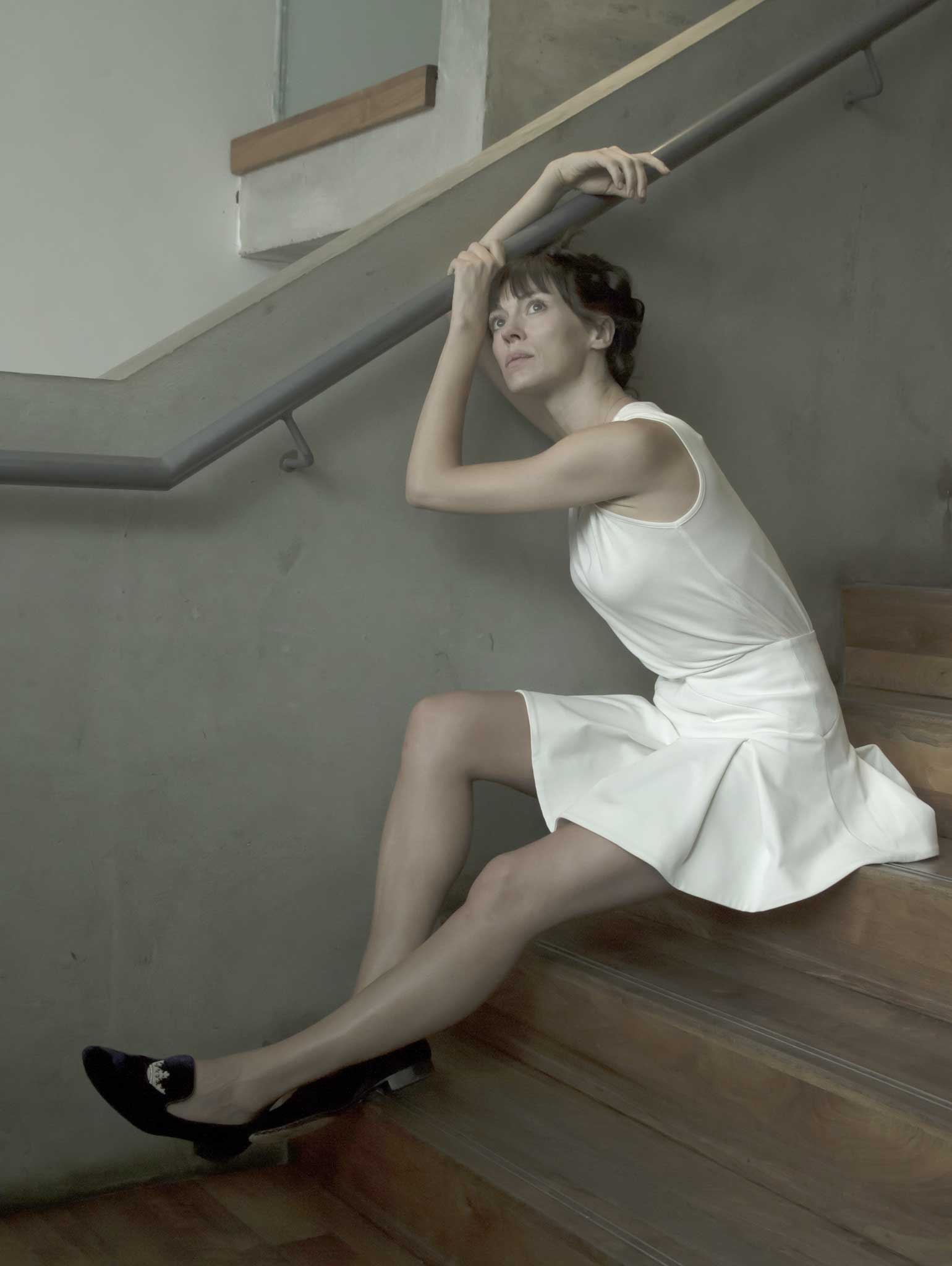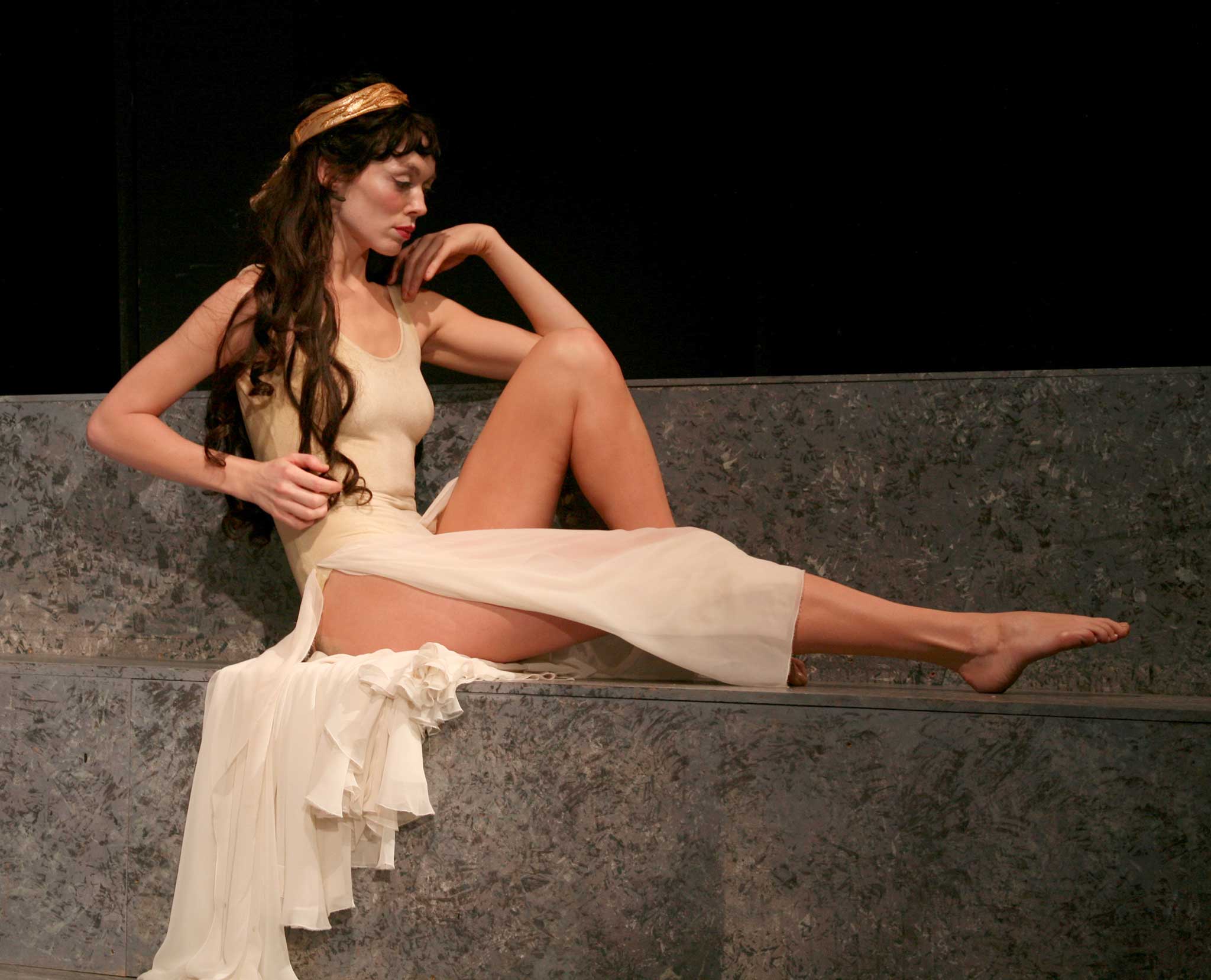Utopia star Fiona O'Shaughnessy: 'I don't like to watch too much violence...it's weird that I'm involved in this'
Back on our screens in Utopia as the elusive Jessica Hyde, Fiona O'Shaughnessy explains where she ends and her strange and wonderful character begins

Your support helps us to tell the story
From reproductive rights to climate change to Big Tech, The Independent is on the ground when the story is developing. Whether it's investigating the financials of Elon Musk's pro-Trump PAC or producing our latest documentary, 'The A Word', which shines a light on the American women fighting for reproductive rights, we know how important it is to parse out the facts from the messaging.
At such a critical moment in US history, we need reporters on the ground. Your donation allows us to keep sending journalists to speak to both sides of the story.
The Independent is trusted by Americans across the entire political spectrum. And unlike many other quality news outlets, we choose not to lock Americans out of our reporting and analysis with paywalls. We believe quality journalism should be available to everyone, paid for by those who can afford it.
Your support makes all the difference.It's been a good time for damaged kick-ass screen heroines – from Lisbeth Salander in The Girl with the Dragon Tattoo to Malmo policewoman Saga Noren in The Bridge, anti-social, mildly Asperger's female protagonists have been so much the rage that they've already drifted into cliché; witness computer whizz Chloe O'Brian's makeover in the reboot of 24, the compelling 24: Live Another Day.
Last year, Channel 4's conspiracy thriller Utopia brought us another of these gun-toting female cultural outcasts. Her name was Jessica Hyde – as in the question that became the show's catchphrase: "Where is Jessica Hyde?"
The daughter of a misguidedly idealistic scientist who had created a virus that could sterilise the human race, Hyde spent the first series on the run from a secretive organisation called the Network, which was intent on spreading the virus through a flu-vaccination campaign. Having fallen into the Network's clutches at the end of the first series, Hyde has spent the first three episodes of the new series staring mutely into space and ignoring her interrogators' cajoling threats.
Last week, however, she finally made her escape, leaping down a waste-shoot for body parts. In short, she's back, covered in gunk but still recognisably the tall, dark avenging angel in tight jeans, leather bomber jacket and hollow stare, packing a pistol the size of her forearm.
"Neil the armourer is like my best friend… he's just been giving me some more gun training," says the Irish actress Fiona O'Shaughnessy, who plays Hyde, when we meet on location in the Leeds hospital that is standing in as Network HQ. "I knew all the makes of gun for a while and was showing off about it until you realise it doesn't make you very popular."
Strikingly photographed, ingeniously written (by Dennis Kelly, who also adapted the hit West End musical Matilda), and with a cast that includes Alexandra Roach, Neil Maskell and Stephen Rea, Utopia was one of my favourite shows of 2013. It is gleefully nasty – and as the second series began earlier this month, it found itself in trouble with The Mail on Sunday for imagining that Margaret Thatcher's close friend and adviser Airey Neave was murdered by the fictional Network, rather than very real Irish Republican terrorists.
O'Shaughnessy's Hyde provides a skewed moral centre to the often shockingly amoral happenings. "I love playing her," she says. "You have to engage in some really interesting patterns of thinking. She is completely untarnished by society, religion, politics and schooling."
O'Shaughnessy leaves to film her next scene, and once she has gone I turn to another journalist who had been present and we say in unison: "She is Jessica Hyde." By that we don't mean she's a damaged sociopath surviving on her wits, but that O'Shaughnessy's way of speaking, indeed her whole demeanour, is Hyde-like.
"As soon as she walked in, we knew it was her," says Utopia's director, Marc Munden. "Fiona is just so extraordinary, so eccentric but really interesting. The thing about Jessica is that there's a slightly Asperger's aspect to her and it takes a special person to deliver that."
"She's better than how I wrote it," enthuses Dennis Kelly. "I thought of a slightly cooler person, but Fiona brought a huge amount of emotion to it. That's what I love about her performance: you genuinely feel you don't know what she's going to do next."

I catch up with O'Shaughnessy in London a couple of months after the shoot, by which time she's tried living in Brighton and on an ashram in India – and quickly made her escape from both. "It felt like a spiritual prison," she says of the ashram. "There were these huge gates and they were always locked and it reminded me of being holed up in the Network's headquarters."
By the end of our interview, I will realise that this was a typically quixotic O'Shaughnessy escapade. As a backpacker in her late teens, for example, she found herself paying for her airfare home from Thailand by appearing in a local soap opera. "Every Tuesday night, I went over to some hotel and got dressed up in traditional Thai costume. They used to feed me my lines and I would say them."
So rather than "Where is Jessica Hyde?", perhaps the question should be: "Who is Fiona O'Shaughnessy, and why haven't we heard of her before Utopia?" Well, it quickly emerges that she is a hippie out of time. "I was meant to be in my prime in the 1960s, for sure," she says. "Actually it's been a real joy to accept that and step into 2014." And like Hyde, she gives the impression of having newly arrived from a parallel universe; she's a self-declared fantasist who keeps in touch with reality via an impish, self-deprecating sense of humour.

Born in Galway in the west of Ireland, O'Shaughnessy moved to Reading ("chalk and cheese", she says of the two towns) at the age of nine, where her father, an IT consultant "with the soul of a poet", moved with his job. "I was k forever attempting to run off back to Ireland," she says. "I got as far as the bridge at the top of the road a couple of times, until I noticed that no one was following me, so I went back."
She has the posture of a dancer – an early passion – but stopped when her knees gave in, although she finally realised another ambition, returning to Galway in her early twenties, where she started "making theatre, partying, falling in and out of love… Then, when I was 24, I moved to Dublin to take my life more seriously and got really lucky with my first job, playing Oscar Wilde's Salome at the Gate Theatre. I made a new family there; Michael Colgan, the Gate's artistic director for more than 30 years, and his wife, Susan Fitzgerald, took me under their wing, and I had a number of roles. I arrived pretty raw, they tell me… and left pretty pretentious!"
The backbone of her career has been in theatre, interspaced with small parts in films that range from a Peter Greenaway biopic to playing a prostitute in a Danny Dyer flick. "I was very camera-shy at that time," she says, explaining why her striking features aren't more familiar to those not au fait with the Dublin theatre scene. "It's easier to be shy on stage. I was a weird anti-actress actress. I was a pain in the arse, actually, for anyone who tried to represent me."

And then came Jessica Hyde. The new series of Utopia maintains – surpasses, even – the excellence of the first, and Hyde is becoming more human as she begins to search for love; there was a tender scene in the most recent episode in which she caressed a photograph of Ian, reminiscent of the scene in which the child gets the monster to smell a flower in James Whale's 1931 movie Frankenstein.
But Utopia is full of less moving moments, with an unapologetic violence that makes it the nearest thing to a graphic novel that television has yet managed. "I don't like to watch too much violence… weird that I'm involved in this," says O'Shaughnessy, before moving on to the "boring personal questions" habitually required by newspaper profiles.
"I'm 39, the same age as Jessica," she reluctantly reveals. "I love being 39 and can't wait to be 40. A lot of my friends are turning 40 this year and freaking out but I don't see what the big deal is. But I live in an ageist industry, so people are always saying, 'Button up the whole age thing – do you want to work?' And I'm not married and I don't have children, nor do I want them; I think marriage was invented by priests to make people miserable so we'll all go to their churches."
I point out that she's wearing a gold crucifix around her neck. "Yeah, but I like Christ… and I also like a bit of gold jewellery."
The second series of 'Utopia' continues on Channel 4 on Tuesday at 10pm
Join our commenting forum
Join thought-provoking conversations, follow other Independent readers and see their replies
Comments